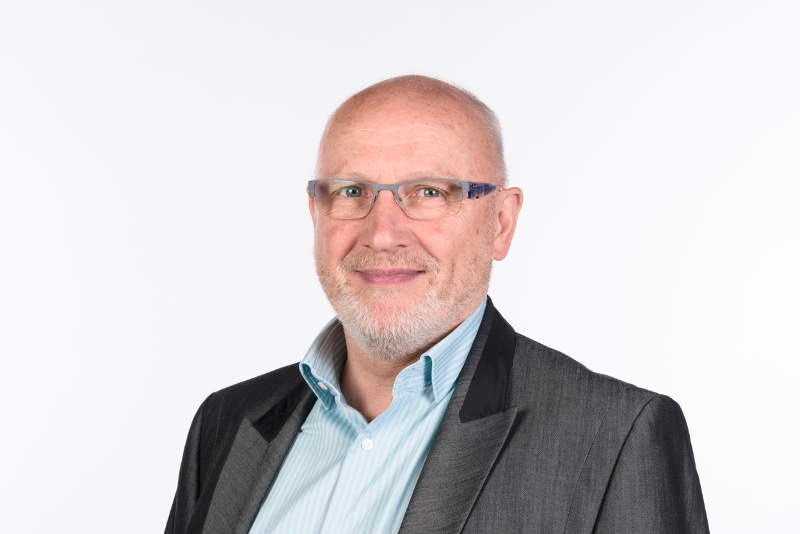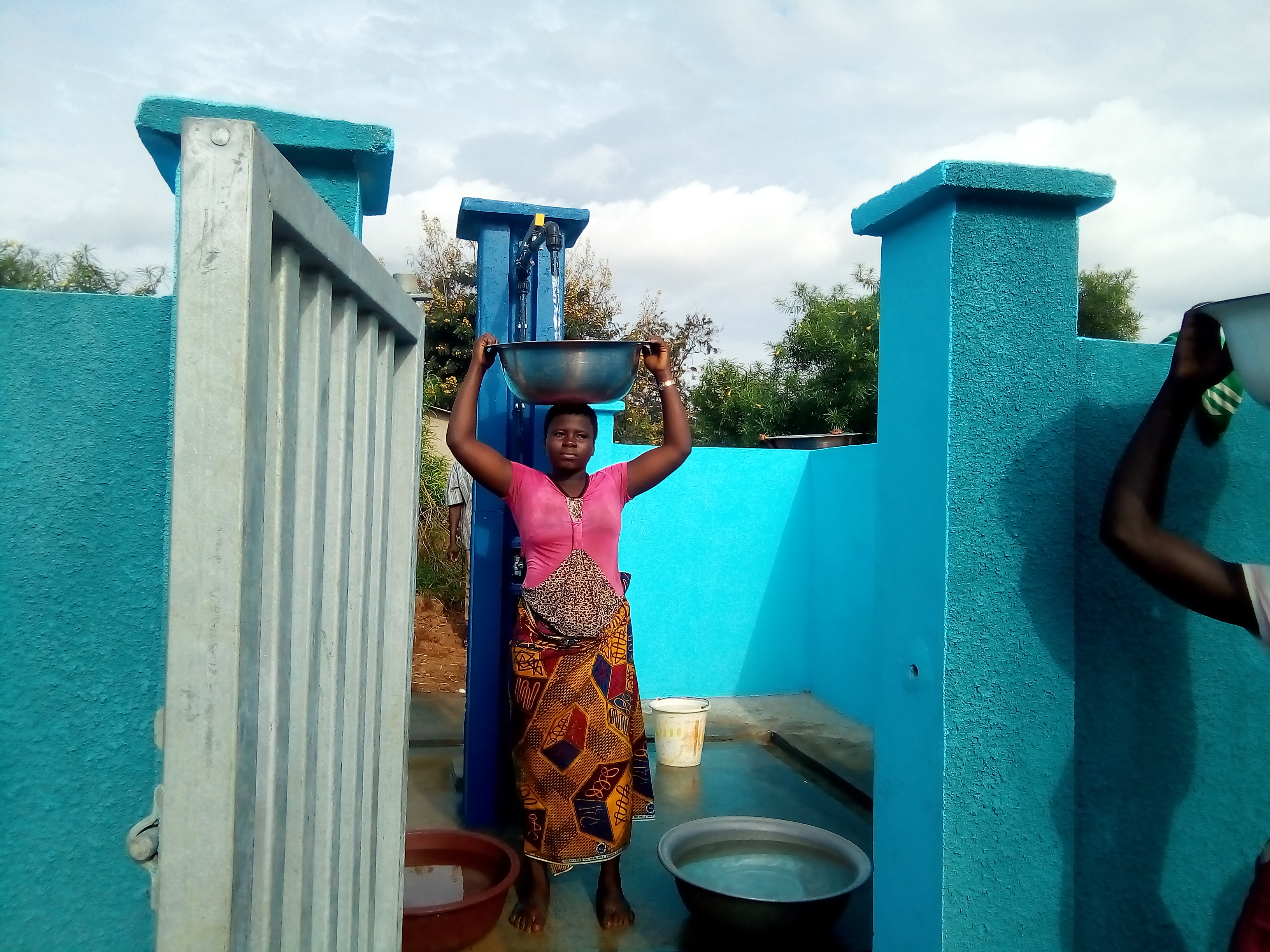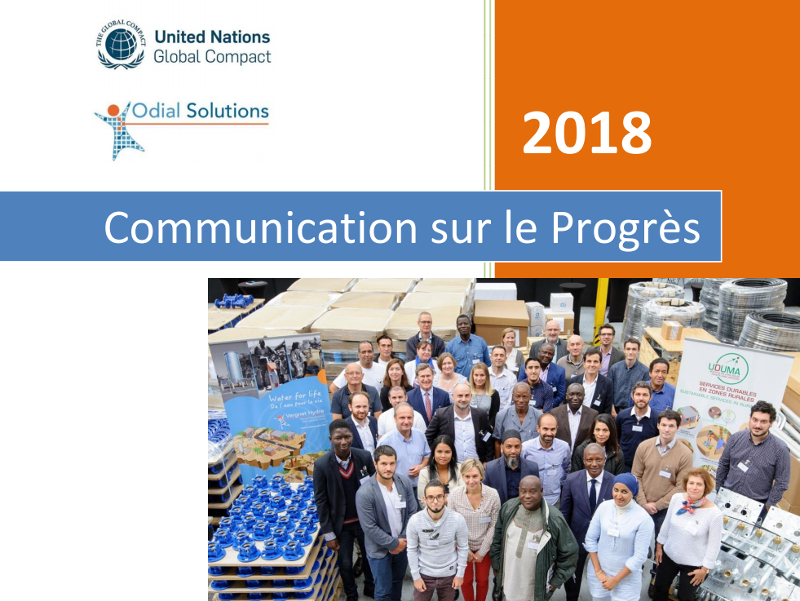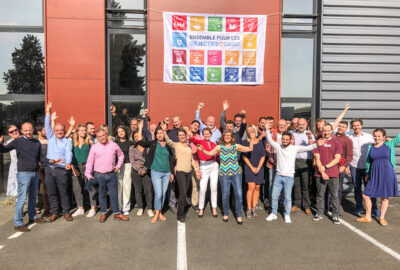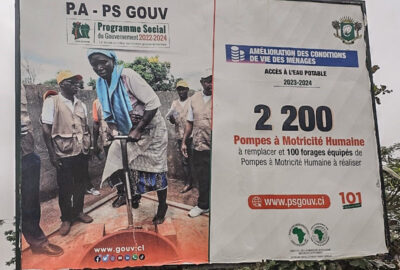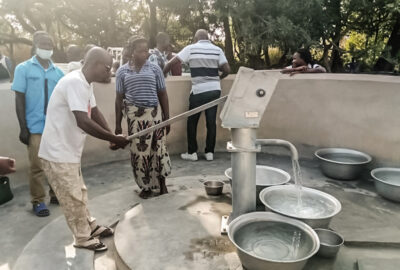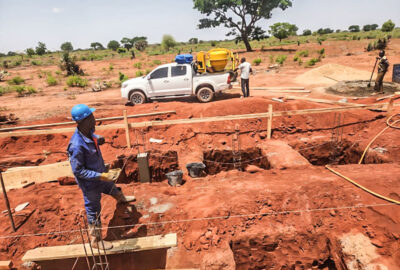Communication, Drinking water, environnement
New Year’s Greetings from the Chairman
2018 will be an intense teaching year
Dear Readers,
For several decades, Official Development Assistance has mainly followed the same approach: lend to the cities and give to the countryside. The laudable objective was to provide “free” funding for essential services, such as water, energy, sanitation, health and education, in the poorest communities.
The assessment of these actions in rural areas is unfortunately very poor because, as is well-known, this infrastructure has never really been efficiently maintained. Countless pieces of equipment have simply been abandoned after a few years. Even worse, this financial waste has been overtaken by a social tragedy behind the statistics, which only take into account the systems and not their effective, sustainable operation, and so do not in any way represent the often tragic reality on the ground.
RURAL AFRICA HAS LONG BEEN MIRED IN A WAIT-AND-SEE ATTITUDE
This already very negative finding is even further aggravated by the behaviour encouraged by aid policies. Considered by many as incapable of funding basic services and therefore treated as a simple cost factor, rural populations are mired in a pernicious fatalistic, wait-and-see attitude. They are suffering even more for this attitude now, as the scarcity of public aid is depriving them of the funding they have become accustomed to.
However, the popularity of mobile telephones has demonstrated the extent to which people, even in rural areas, are willing and able to fund the services they need, provided that they work well. What is true for telephones will also be true for other essential services such as water and energy.
RURAL AFRICA SHOULD BE CONSIDERED A GENUINE ECONOMIC ACTOR
It is therefore high time to consider rural areas as genuine players in the African economy. Over half of the continent’s population still live in rural areas and, rather than deploring their alleged inability to adapt to the rules of the market economy, it is our duty to offer them models suited to their specific geographical and financial context.
The aim is to give these dispersed, cash-strapped rural populations access to basic services, especially water and energy, at a cost that is affordable to them. In this way, their freedom of choice and dignity that has been taken away by poorly conceived aid for far too long will gradually be restored to them.
2017, A MILESTONE IN THE HISTORY OF ACCESS TO DRINKING WATER IN AFRICA
2017 is a milestone in the history of access to drinking water in Sub-Saharan Africa. Our young subsidiary UDUMA, the first private operator offering people in rural areas the possibility to pay for the sustainability of the water supply services through regular contributions by the volume they consume, recently signed its first Public Private Partnership. More than 500,000 Malians will benefit from this service, starting April 2018 and for the next 15 years at least.
Sub-Sahara African governments are increasingly interested the public service delegation proposed by UDUMA. However, the transition from the « one-time procurement of equipement » paradigm to the « public service delegation to a private operator » paradigm will take more than the blink of an eye. This requires working hand in hand with all stakeholders, and explaining and reassuring.
2018 will thus be a year of intense teaching regarding the « UDUMA » management model and its advantages : universal access to drinking water, improvements in public health and jobs creation. I am convinced this challenge will be a success.
I wish you all a happy and prosperous New Year!
Best Regards
Thierry BARBOTTE
Chairman, ODIAL SOLUTIONS


